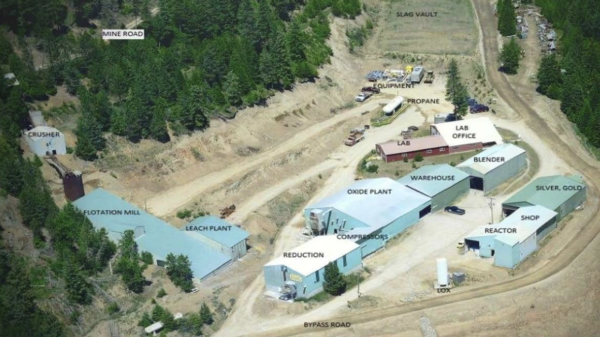Despite U.S. federal lawmakers stalling on a historic cannabis legalization vote, five different states could legalize through ballot measures this November — opening up US$9 billion, or around C$12 billion, in new revenue in the process.
That’s according to market research firm New Frontier Data, which released a U.S. election tracker this week to provide market insights and state-by-state analysis for each ballot initiative.
Voters in three states — New Jersey, Arizona and Montana — will decide solely on legalizing recreational weed, while Mississippi could approve medical cannabis via the ballot. South Dakota will be the first state ever to vote on both a recreational and medical ballot in the same election.
“The 2020 election could be one of the most consequential and historical events to change the landscape of the legal U.S. cannabis industry,” New Frontier Data CEO Giadha DeCarcer said in a statement.
If all five states vote green in November, the U.K.-based data firm estimates it will unlock US$9 billion in new revenue from 2022-2025, while driving the total U.S. legal market to US$35.1 billion by 2025. Currently, 11 states have legalized recreational weed, while medical cannabis programs are regulated in 33 states.
The 2020 election could be one of the most consequential events in the history of the legal U.S cannabis industry.
Stay informed with comprehensive and FREE election coverage through our newly launched 2020 Election Resource Center: https://t.co/dEPE0CHyyC pic.twitter.com/jCS0gaIb3q
— New Frontier Data (@NewFrontierData) September 24, 2020
New Jersey, with a population of 8.9 million, commands the biggest market potential with US$1.8 billion worth of cannabis sales projected by 2025.
A recent poll in the Garden State shows 66 per cent of voters favour the ballot measure as public support continues to grow.
New Jersey would be the first state to legalize adult-use cannabis in America’s densely populated northeastern region, which New Frontier Data says would attract significant canna-tourism from neighbouring states.
The data firm projects over 1 million potential cannabis consumers in the state, while noting that a number of multi-state operators have already started investing there.
Read more: Curaleaf bets big on New Jersey months ahead of legalization vote
In Arizona, a Monmouth University poll shows voter support for the 2020 adult-use ballot sits at 51 per cent, with 41 per cent opposing the measure.
Despite an adult-use proposition being defeated at the polls in 2016 with 51.3 per cent voting “no”, New Frontier Data notes Arizona’s medical market has surged with over 260,000 registered patients as of August.
With an estimated 1.2 million cannabis consumers in the state, New Frontier Data estimates annual revenues for adult-use cannabis will top US$1 billion in 2025.
Mississippi’s medical ballot has the highest support in the polls of any 2020 measure with 81 per cent of voters in favour of legalization.
But the state garners the lowest market potential of any ballot at US$66 million by 2025, according to the data firm.
In Montana, annual sales are projected to reach US$175 million in 2025, while a February poll shows 54 per cent are in favour of legal recreational weed.
Meanwhile, a statewide poll in South Dakota shows 70 per cent of voters support medical cannabis and 60 per cent would legalize adult-use. If both measure pass, New Frontier Data expects annual sales of US$142 million in 2025.
National advocacy group Marijuana Policy Project, which assists in ballot campaign efforts in all states, says legalizing cannabis is more important than ever in 2020.
Firstly to repair the harms done to communities worst affected by war on drugs. Secondly to help states and cities raise new tax revenues, which have fallen significantly during the pandemic.
While the U.S. House vote on the Marijuana Opportunity Reinvestment and Expungement Act has been delayed until sometime after the November election, MPP says pressure on federal lawmakers to end prohibition will only grow as more states legalize.
Read more: Toxic US politics blamed for delay of MORE Act vote
Top image via Marijuana Policy Project
jared@mugglehead.com
@JaredGnam














